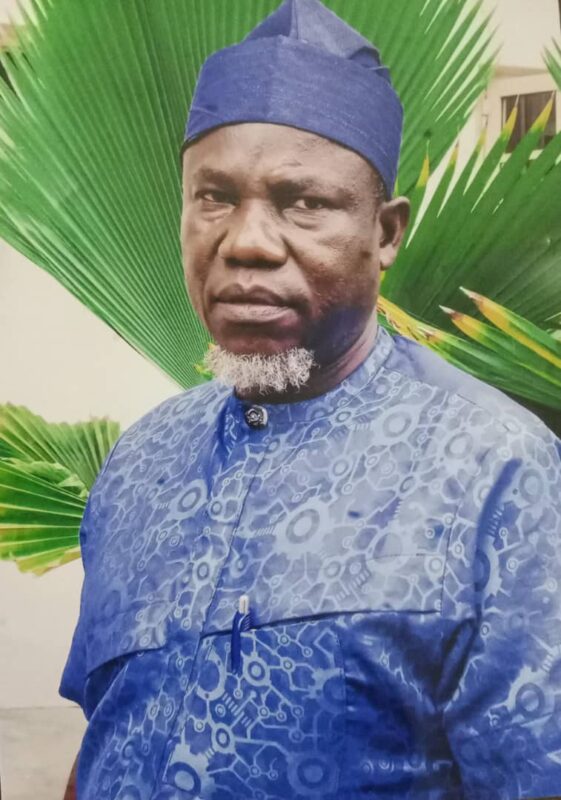National Issues
Urging Politicians’ Media Aides To Always Write Rightly And Rightly Write -By Isaac Asabor
In fact, spokesmen and media assistants must remember that their words shape public opinion. A careless phrase can deepen ethnic divisions. A misleading defense can entrench distrust. A poorly written statement can reduce a serious issue to a national joke. On the other hand, writing rightly and rightly writing can calm tensions, clarify policies, and restore faith in governance.

Words are never neutral. They can soothe or sting, enlighten or mislead, unite or divide. In politics, where perception often carries more weight than fact, the way words are written becomes even more critical. This is why I find myself returning to an idea I once explored: the need to write rightly and rightly write.
At first glance, it may sound like a linguistic puzzle. But it is more than clever phrasing. To write rightly is to respect the rules of language, grammar, punctuation, structure, and clarity. To rightly write is to ensure that those rules are employed in the service of truth, fairness, and responsibility. One is technical; the other is ethical. Both are indispensable, especially for those who speak or write on behalf of politicians.
At this juncture, it will not be out of place to give reasons to why writing rightly matters. First and foremost, a spokesman who cannot punctuate properly, who mangles tenses, or who strings together incoherent sentences is like a tailor who cannot thread a needle. The result is embarrassment not only for himself but for the politician he represents. Nigerians have seen enough press statements that read like hurried WhatsApp messages, full of errors, contradictions, and poor construction. Such sloppiness does more than irritate readers; it erodes credibility.
In political communication, one misplaced comma can twist meaning. A wrongly worded statement can ignite controversy, breed mistrust, or even provoke unrest. Writing rightly ensures clarity. It ensures that the message lands exactly as intended, without ambiguity or ridicule. For media aides, this is the minimum requirement of the job.
On the other hand, rightly writing matters even more. This is as technical correctness alone does not suffice. A press release can be grammatically flawless yet morally hollow. A media aide may polish propaganda until it gleams, but if it is based on lies, exaggerations, or half-truths, then it becomes dangerous. This is where the call to rightly write comes in.
To rightly write is to weigh the ethical burden of words. It is to ask: Does this statement inform or mislead? Does it serve the people’s understanding or merely shield a politician from accountability? Does it build trust or further erode it?
Too often in Nigeria, political communication falls into the trap of writing rightly without rightly writing. Spokesmen issue elegant but empty defenses of their principals. They bury facts under spin. They package deception in impeccable grammar. And in the end, citizens grow even more cynical about governance.
Yet the reverse failure is equally damning. There are moments when aides attempt to tell the truth but present it in careless, error-ridden writing. The message may be noble, but poor delivery kills it. Readers dismiss the truth not because it lacks weight, but because it lacks polish.
This is why the balance must be struck: both dimensions are necessary. Without writing rightly, credibility suffers. Without rightly writing, conscience suffers. Together, they make communication powerful, persuasive, and legitimate.
History gives us examples of writing that was both technically sound and ethically grounded. Consider the Watergate reporting that toppled a U.S. president, clear, concise, yet courageous. Or Martin Luther King Jr.’s I Have a Dream speech, which is no doubt eloquent in language and profound in moral vision. Nearer home, think of Chinua Achebe, whose simple prose carried deep cultural truths. These are instances where words were not just well-written but rightly written.
Contrast that with the Nigerian political landscape today, where too many aides craft statements that sound smart but mean little, or that mislead with deliberate cunning. Such writing neither uplifts the politician nor strengthens democracy. It only widens the gulf between leaders and citizens.
In fact, spokesmen and media assistants must remember that their words shape public opinion. A careless phrase can deepen ethnic divisions. A misleading defense can entrench distrust. A poorly written statement can reduce a serious issue to a national joke. On the other hand, writing rightly and rightly writing can calm tensions, clarify policies, and restore faith in governance.
It is not just about protecting the image of a principal. It is about protecting the integrity of public discourse. In a democracy already strained by propaganda and disinformation, every political communicator has a duty to use language as a bridge, not a weapon.
The burden is heavy but noble. To always write rightly and rightly write is to combine head and heart. The head ensures technical accuracy; the heart ensures ethical responsibility. One without the other is incomplete.
So the next time a politician’s spokesman hovers over the keyboard, let him pause and ask: Am I writing rightly? Am I rightly writing? For in those two answers lie not only the reputation of his principal but the trust of the people and, ultimately, the health of our democracy.










